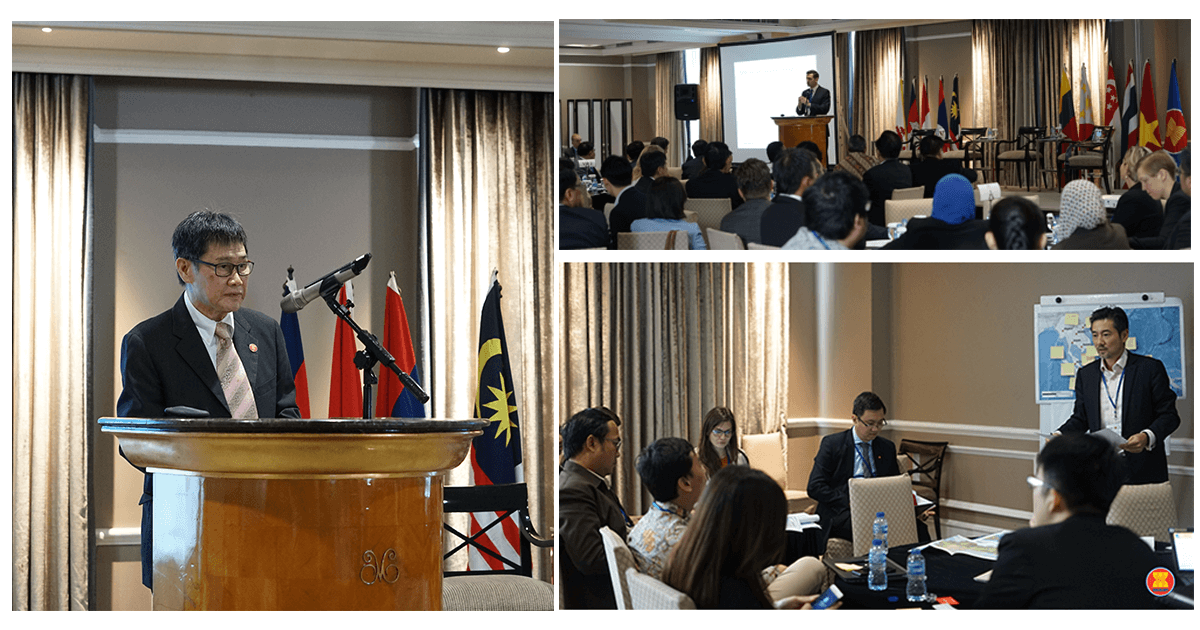
JAKARTA, 20 April 2018 - Senior officials and representatives from ASEAN Member States involved in infrastructure and connectivity matters participated in the Inception Workshop on Establishing the Initial Rolling Priority Pipeline of Potential ASEAN Infrastructure Projects which was held on 18 and 19 April in Jakarta, Indonesia.
The workshop is part of continuous efforts by ASEAN to promote infrastructure development and attract more investments in the region. ASEAN estimates that it will need to spend about USD 110 billion to USD 210 billion a year on infrastructure but these requirements are largely unmet. To address this, the Master Plan on ASEAN Connectivity (MPAC) 2025 has recognised the need to strengthen regional capabilities in developing a pipeline for investible projects.
We need to develop an ecosystem for planning, developing, financing and operating infrastructure in the region and this entails close coordination among the ministries or agencies responsible for different infrastructure assets. This workshop is an important step in our collective efforts to build capacity to deliver infrastructure, Secretary-General of ASEAN Dato Lim Jock Hoi emphasised during the opening ceremony.
The two-day workshop was organised by the ASEAN Connectivity Coordinating Committee (ACCC) and Lead Implementing Body for Sustainable Infrastructure (LIB-SI) with the assistance of the ASEAN Secretariat. ASEAN expressed its appreciation to the ASEAN-Australia Development Cooperation Program Phase II for the funding support and the World Bank Group for providing technical advisory services.
In his remarks, the Chair of the ACCC and Singapores Permanent Representative to ASEAN Ambassador Tan Hung Seng made three key points regarding the issue. First, ASEAN governments need to increase the visibility of infrastructure projects and improve their bankability, as well as enhance the quality and quantity of data available on the projects in order to secure the buy-in of the private sector and multinational development banks to invest in ASEAN infrastructure projects. Second, infrastructure development is important as a key enabler of economic growth. Third, ASEAN has to strengthen regional cooperation to achieve sustainable infrastructure development. Ambassador Tan also underlined that the establishment of an Initial Rolling Priority Pipeline of Potential ASEAN Infrastructure Projects was an ASEAN initiative and that the projects success depended on ASEANs efforts as well as support from ASEANs external partners.
Ambassador of Australia to ASEAN Jane Duke highlighted in her remarks the profound importance of improving infrastructure connectivity in ASEAN and that Australia is a committed supporter of ASEANs connectivity efforts. She noted that this project, announced in March 2018 during the ASEAN-Australia Special Summit in Sydney, would produce a pipeline list of ASEAN Infrastructure projects in a transparent and professional way that would support greater connectivity among ASEAN Member States, the broader region and beyond.
During the workshop, the participants exchanged views on the objectives and methodology that would be used to develop the initial pipeline and provide inputs to the approach, as well as consider potential ASEAN infrastructure projects for inclusion in the pipeline. Country and sector breakout sessions were also held to provide opportunity for more in-depth discussions.
The workshop was attended by 106 participants, including delegates from ACCC, LIB-SI, National Coordinators (NCs), ASEAN Finance and Central Bank Deputies Meeting (AFCDM), Senior Transport Officials Meeting (STOM), Senior Officials Meeting on Energy (SOME), and Telecommunications and Information Technology Senior Officials Meeting (TELSOM).
